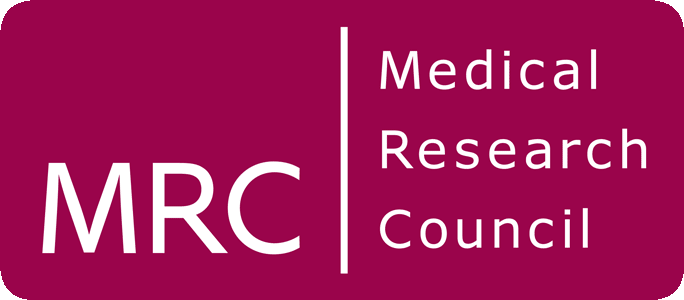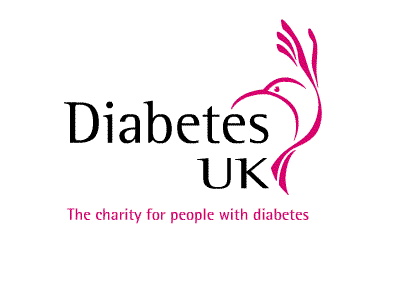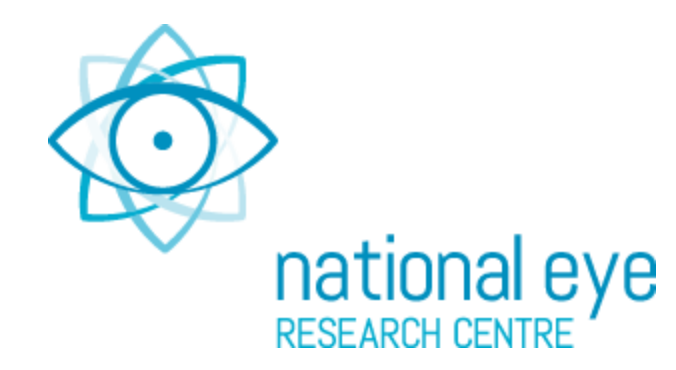The TVBL within Cancer Biology in the Division of Cancer & Stem Cells is a multi-disciplinary research laboratory working on biological basics of cancer and vascular biology, and how we can use this to translate new findings on mechanisms of cancer and vascular disease into novel therapeutic approaches for cancer and other diseases.

Research groups
The research in the TVBL currently includes five groups focussing on vascular biology, cancer genetics, pain mechanisms, hypoxia/acidosis, and microvascular imaging.
Group leaders
David
Bates, Professor of Oncology
My research
focusses on the biology of VEGF,
regulation of angiogenesis, vascular permeability
and control of splicing.
Kevin Gaston, Professor of Cancer Science
The focus of my research is on transcription factors and the roles that these proteins play in tumourigenesis.
Abdol Shams Nateri, Associate Professor
My research aims to obtain insights into the development and the pathological events that lead to the cancer of the gut and to understand the molecular mechanism of the links between signalling, transcription and diseases that control the nature of a "stem cell niche".
Alan McIntyre, Associate Professor
My research focuses on understanding the molecular and cell biology of the hypoxic microenvironment.
Andrew Benest, Assistant Professor
Endothelial quiescence & Transcriptomics - Understanding molecular mechanisms of blood vessel growth in health and disease
Kenton
Arkill, Assistant Professor
My research focuses on developing 3D light and electron
microscopy techniques in order to better describe the
microcirculation.
The TVBL Resources.
Facilities
The TVBL is a shared 500m2 laboratory that
houses approximately 30 scientists and PhD
students focusing on areas of cancer cell biology and
vascular biology. We have state of the art facilities in
the lab for cell culture and cell phenotyping (including
elecrical cell impedence and permeability measurement),
epifluorescence and confocal microscopy, image analysis,
mas spectroscopy, multiplate analysis, microdissection,
protein, RNA and DNA analysis, molecular biology,
digital droplet PCR, etc and access to the in vivo
biology laboratories and cancer studies unit for
physiological investigation of cancer and blood vessel
function.
Vacancies
We have three postdoctoral
positions positions available in the TVBL at the
moment (August-Sept 2018).
Postdoctoral
Positions
Postdoc in Vascular Biology
We are seeking a
self-motivated, dynamic and dedicated postdoctoral
research assistant to join the new Benest lab.
The project will aim to unravel transcriptional
control of endothelial quiescence during
development, and pathological conditions. The
project is funded by the British Heart
foundation. You will be a member of a
new and dynamic research group, working closely with
a new PI within the TVBL. Opportunity to
co-supervise undergraduate and Masters students, and
attend international conferences will be provided.
The ideal candidate will have, or be close to
obtaining their PhD, preferably with a working
knowledge of endothelial cells. Full training
in several animal models will be given, but an
appreciation of how complex in vivo systems can be
studied at a transcriptomic, and cellular level
would be advantageous.
The is a fulltime 2 year post. To express an interest in this post email:
Andrew.Benest@nottingham.ac.uk
Postdoc in Translational Cardiovascular Research
The Tumour and Vascular Biology Laboratories
(www.tvbl-nottingham.org) in the School of Medicine
seeks to appoint a postdoctoral research fellow to
investigate the potential for a new treatment for
peripheral ischemic disease. This BHF funded
position in Prof Bates' lab will focus on determining
whether a new treatment for arterial disease can be
generated using a monoclonal antibody to anti-angiogenic
VEGF isoforms. You will be expected to have a PhD in
Physiology, Cell Biology, Biochemistry or relevant
subject and an emphasis on cardiovascular biology,
preferably with experience of in vivo models of
ischemia, immunoprecipitation, cell biology assays and
biochemical assays. You will work within a large and
exciting team focussing on diverse problems from trying
to find treatments for cardiovascular disease, cancer
and blindness to understanding basic mechanisms of cell
biology.
The Project
The development of new vessels in health and disease is
dominated by vascular endothelial growth factor-A
(VEGF). One family of VEGF splice forms is
pro-angiogenic, pro-permeability and vasodilatory (e.g.
VEGF165). We were the first to identify a
sister family of isoforms that have opposing properties
(e.g. VEGF165b) and are expressed in normal
human tissues, and upregulated in patients with arterial
disease. In numerous in vivo angiogenesis models the
angiogenic phenotype of VEGF has been shown to depend on
the balance of its isoform families, such that control
of VEGF165b is now in clinical development as
a therapeutic in human angiogenic eye disease. To
identify the angiogenic potential of regulating VEGF
isoform availability in patients with arterial disease,
we have developed antibodies with therapeutic potential.
We are optimising these antibodies, and will test
whether they can stimulate re-growth of blood vessels in
cellular and animal models of disease. This study could
lay the basis for a new class of therapeutic strategies
for vascular disease.
To express an interest in this post email: David.Bates@nottingham.ac.uk
Postdoc in Neuroendocrinology and
Angiogenesis
Project title: Angiogenic mechanisms underlying
seasonal adaptation to a changing environment.
Duration: 36 months. Salary: Grade J, £36,613 / £41212
per year.
Funding body: BBSRC
We are seeking a flexible postdoc prepared to work based
in Bristol, but also spending up to a year in the TVBL
in Nottingham. This three way collaboration between the
Universities of Bristol, Nottingham and Aberdeen will
investigate the role of angiogenesis in neuroendocrine
control of seasonal adaptation in horses, sheep and
hamsters. Candidates must hold a PhD or equivalent in
Neuroendocrinology, Chronobiology, Angiogenesis, or
Physiology. The successful candidate must possess
outstanding experimental and laboratory skills relevant
to this role, as well as demonstrable success in in vivo
work, tissue culture and data management. Practical
experience in the use of research methodologies and
techniques in molecular biology are essential for this
post.
We have recently shown that a mechanism regulating
angiogenesis within the pituitary gland participates in
the seasonal adjustment of photoperiodic species to a
changing environment by: a) controlling the remodelling
of the pituitary microvasculature; and b) acting as
messenger signals from the melatonin sensitive pars
tuberalis (PT) to the endocrine cells of the pars
distalis involved in the regulation of seasonal
fertility. Here we will investigate whether this is a
conserved system of adaptation, operating in species
that reproduce at different times of the year, and
examine the intra- and inter-cellular pathways
underlying this process. It is well established that the
pattern of melatonin secretion from the pineal gland
decodes day length information through a direct action
in the PT. The overall hypothesis of this project is
that differential expression of VEGF-A isoforms within
the pituitary participate in the melatonin signal
readout to translate photoperiodic cues into an annual
physiological response. We will investigate
melatonin-induced VEGF-A alternative splicing and assess
the implication of clock genes in the VEGF-A regulation
of seasonal physiology using whole animal systems and in
vitro strategies.
To express an interest in this post email: David.Bates@nottingham.ac.uk
Technician Positions
We are currently interviewing for a full time
technician in the TVBL. Watch this space for more
opportunities.
PhD Studentships
Click here to see
opportunities. We also have self
funded studentships available listed by PI.
Upcoming and recent Events
We have a dynamic and active training and social
programme. Friday afternoon Cancer Biology seminars
(including regional food and drink) start again in
September 2019
Seminar Series
Recent Publications
(2018)
(Bold = current lab
members, italics = Nottingham linked labs)
Tridgett
M, Lozano L, Passaretti P, Desai NR,
Proctor TJ, Little HA, Logan RT, Arkill
KP, Oppenheimer PG, Dafforn TR.Dye
Aggregate-Mediated Self-Assembly of
Bacteriophage Bioconjugates.
Bioconjug Chem.
2018 Nov 21;29(11):3705-3714. doi:
10.1021/acs.bioconjchem.8b00617. Epub
2018 Oct 31.
Onions
K, Gamez M, Buckner NR, Baker SL, Betteridge KB,
Desideri S, Dallyn BP, Ramnath R, Neal CR,
Farmer LK, Mathieson PW, Gnudi L, Alitalo K, Bates
DO, Salmon AHJ, Welsh GI, Satchell SC,
Foster RR.
VEGFC Reduces Glomerular Albumin
Permeability and Protects Against Alterations in
VEGF Receptor Expression in Diabetic Nephropathy. Diabetes. 2018 Nov 2. pii:
db180045. doi: 10.2337/db18-0045. [Epub ahead of
print]
Descamps
B, Saif J, Benest AV, Biglino G, Bates
DO, Chamorro-Jorganes A, Emanueli C. BDNF
(Brain-Derived Neurotrophic Factor) Promotes
Embryonic Stem Cells Differentiation to Endothelial
Cells Via a Molecular Pathway, Including
MicroRNA-214, EZH2 (Enhancer of Zeste Homolog 2),
and eNOS (Endothelial Nitric Oxide Synthase). Arterioscler Thromb Vasc Biol.
2018 Sep;38(9):2117-2125. doi:
10.1161/ATVBAHA.118.311400.
Muhammad BA, Almozyan
S, Babaei-Jadidi R, Onyido EK, Saadeddin A,
Kashfi SH, Spencer-Dene B, Ilyas M, Lourdusamy A,
Behrens A, Nateri AS. FLYWCH1, a Novel
Suppressor of Nuclear β-catenin, Regulates Migration
and Morphology in Colorectal Cancer.
Mol Cancer Res. 2018 Aug 10. pii:
molcanres.0262.2018. doi:
10.1158/1541-7786.MCR-18-0262. [Epub ahead of print]
Chung GHC, Domart MC,
Peddie C, Mantell J, Mclaverty K, Arabiotorre A,
Hodgson L, Byrne RD, Verkade P, Arkill K,
Collinson LM, Larijani B.Acute depletion of diacylglycerol from the
cis-Golgi affects localized nuclear envelope
morphology during mitosis. J
Lipid Res. 2018 Aug;59(8):1402-1413. doi:
10.1194/jlr.M083899. Epub 2018 Jun 12.
Bates DO, Beazley-Long
N, Benest AV, Ye X, Ved N, Hulse
RP, Barratt S, Machado MJ, Donaldson LF,
Harper SJ, Peiris-Pages M, Tortonese DJ, Oltean S,
Foster RR. Physiological Role of Vascular
Endothelial Growth Factors as Homeostatic
Regulators. Compr Physiol.
2018 Jun 18;8(3):955-979. doi: 10.1002/cphy.c170015.
Bestall SM, Hulse RP,
Blackley Z, Swift M, Ved
N, Paton K, Beazley-Long N, Bates DO,
Donaldson LF.
Sensory neuronal sensitisation occurs
through HMGB-1-RAGE and TRPV1 in high-glucose
conditions. J Cell Sci.
2018 Jul 26;131(14). pii: jcs215939. doi:
10.1242/jcs.215939.
El
Ansari R, McIntyre A, Craze ML, Ellis
IO, Rakha EA, Green AR. Altered
glutamine metabolism in breast cancer; subtype
dependencies and alternative adaptations. Histopathology. 2018
Jan;72(2):183-190. doi: 10.1111/his.13334. Epub 2017
Oct 17. Review.
Neal CR, Arkill
KP, Bell JS, Betteridge KB, Bates DO,
Winlove CP, Salmon AH, Harper SJ. Novel Haemodynamic Structures in the Human
Kidney Am J Physiol Renal
Physiol. 2018 Jun 20. doi:
10.1152/ajprenal.00566.2017. [Epub ahead of print]
Ved N, Da Vitoria
Lobo ME, Bestall SM, L Vidueira C, Beazley-Long
N, Ballmer-Hofer K, Hirashima M, Bates DO,
Donaldson LF, Hulse RP. Diabetes-induced
microvascular complications at the level of the
spinal cord: a contributing factor in diabetic
neuropathic pain. J
Physiol. 2018 Aug;596(16):3675-3693. doi:
10.1113/JP275067. Epub 2018 Jul 11.
N Beazley-Long, F
Almahasneh, W Ashby, SM Bestall, MN Swift,
A Durrant, CE Moss, AV Benest, RP
Hulse, DO Bates, LF Donaldson.
VEGFR2 promotes central endothelial
activation and the spread of pain in inflammatory
arthritis Brain Behaviour and Immunity. 2018 Mar 14. pii:
S0889-1591(18)30060-6
SL
Barratt, T Blythe, K Ourradi, C Jarrett, GI
Welsh, DO Bates, AB Millar Effects
of hypoxia and hyperoxia on the differential
expression of VEGF-A isoforms and receptors in
Idiopathic Pulmonary Fibrosis (IPF). Respir Res. 2018 Jan 15;19(1):9
M
Stevens, CR Neal, AHJ Salmon, DO Bates, SJ
Harper, S Oltean. VEGF-A165b restores normal
glomerular water permeability in a diphtheria-toxin
mouse model of glomerular injury. Nephron In Press
See more here
Posters

Exonate Ltd is a
spin out company of the TVBL, focussed on developing
treatments for diseases involving altered splicing,
particularly of VEGF.
Funding
Our funding comes from multiple sources. We gratefully
acknowledge funding from the following bodies
 |
 |
 |
 |
|
 |


 PhD Studentships
PhD Studentships
